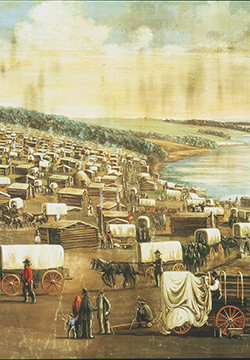June 30, 1843
Missouri v. Joseph Smith: Joseph Smith petitioned the Nauvoo Municipal court for a writ of habeas corpus to quash a warrant issued by Governor Thomas Ford on charges of treason against Missouri.

Read peer-reviewed articles about Joseph Smith and other Church history topics from BYU Studies. Visit byustudies.byu.edu.